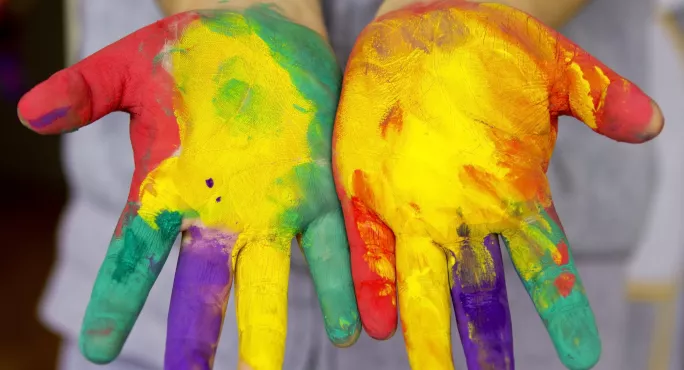In the mid-90s my secondary school made a concerted effort to steer me away from art and towards the sciences because of my high grades. It is odd that one discipline was preferred, given their many attributes in common. Art and science both require imagination, public funding and expensive study in higher education. They provide esteem and profit for Britain, glory to a few, and a precarious income to many.
Yet the sciences have authority in our culture where the arts seem an arbitrary luxury. Parents regard a BSc as a high-status degree with transferable value. Our reflex as parents is to want our children to get the highest grades they can, to achieve high status, to earn enough money to not rely on anyone else for housing, health and high-yield investments. But what of happiness? This attitude is at odds with our tradition of schooling children to become citizens who care for their collective needs. An English Baccalaureate syllabus marginalising the arts could institutionalise the informal pressure I experienced and arrest the social mobility the arts provide in what remains of free education.
Arts subjects not only contain their own history and techniques, but also methods of learning anything in a collaborative and processual way. They provide concrete benefits for all. The arts equip us with democratic speech. They are the alternative to violence in creating and continuing our culture. They help us feel like fellow creatures. Artists agitate social movements, transforming corrosive conformity into progressive solidarity. Art creates the experience of wealth as opposed to the amassing of it. Like our sciences and politics, our arts will outlast our civilisation and we will be judged by them.
Art ‘deserves funding’
For these reasons, it doesn’t matter if the arts make a profit - they are still public money well spent. And artists have just as much right to funding as judges, politicians and scientists. The fact that the arts are underpaid and routinely confused with the gallery-auction house complex is unfortunate. If we ask what artwork needs making, then we conclude we need many more artists. If we ask how many artists the art market can remunerate, then we conclude we need a good deal fewer. The child who can draw is squashed in that equation.
But who really wants schools that set up arbitrary knowledge hoops to help us hand out status? Our methodology of schooling should invite children to create a happier, richer, more equal society, through developing a child’s primary gifts regardless of their potential wage. Teachers have the motivation to do this, but they need to know that they also have the trust and support of the government.
David Henningham is an artist and author. Join Henningham Family Press as it explores the themes of employment and learning through art in The Maximum Wage, a “performance publishing extravaganza” at St Paul’s West Hackney Church Hall, London N16, on 12 March 2016, 11am to 4pm. For details visit bit.ly/MaxWage
Want to keep up with the latest education news and opinion? Follow TES on Twitter and like TES on Facebook
